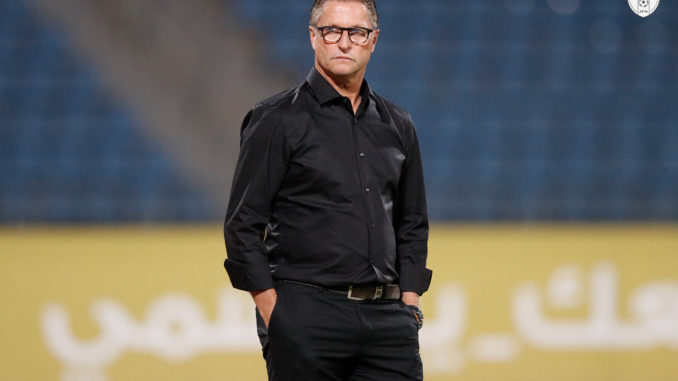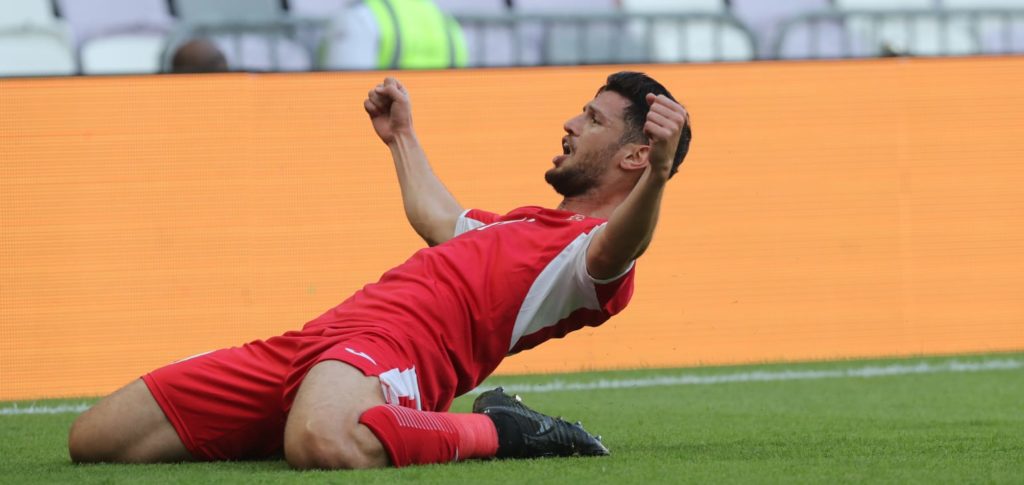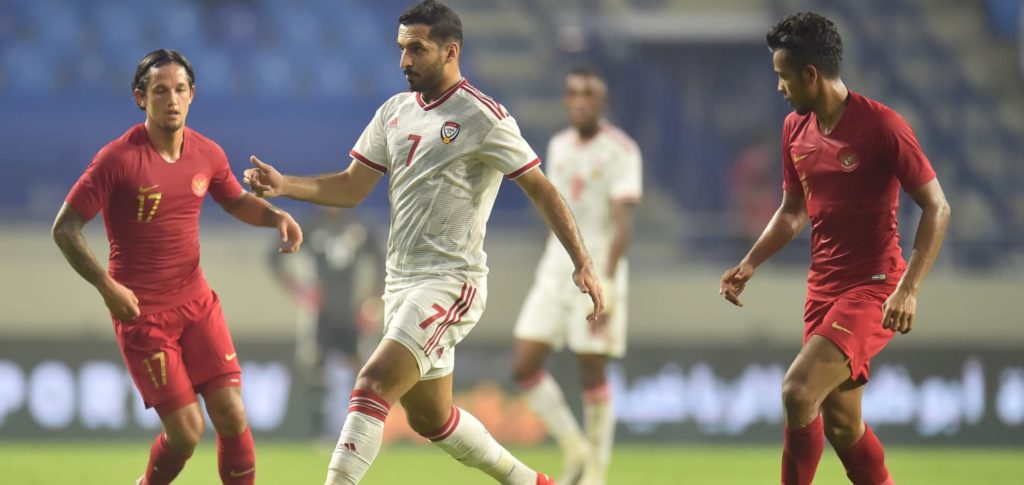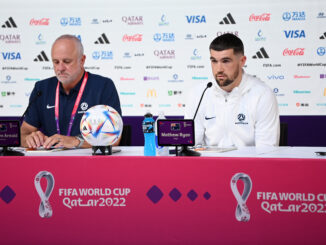
The slow burner that is World Cup qualification draws to a close for the calendar year this week, as we hit the halfway stage of the Round 2 group stage.
For many thus far it’s offered predictability, on occasion reinforcing the wide disparities in quality across Asia, yet it should be pointed out there is still everything to play for, with this Thursday’s fixtures in particular promising plenty.
The AFC’s rigid scheduling, dependant on your initial draw seeding has already demonstrated it’s disadvantages, with October’s wildly skewed batterings showing up the continent’s football on a magnitude we’d all like to avoid.
Yet with the bad, invariably we have a slate of fixtures to really get behind. In theory this is the round where the top two (in terms of expectation rather than current standings) square off in what will likely cement the course of qualification.
Some real titanic battles are set to take flight; Vietnam vs UAE, Iraq vs Iran, Syria vs China, Jordan vs Australia, Uzbekistan vs Saudi Arabia; ties that jump off the page as perfect adverts for Asian football, and demonstrate what the continent can really offer in terms of excitement, intrigue and drama.
With so much to play for however inevitably there will be casualties.
While in the main the favourites have cruised through their early fixtures, West Asia in particular feels a little battered and bruised after a number of sides dropped crucial points in the last window.
No strangers to pressure, expectations have continued to rocket in the region, and with such a do-or-die round of games set to play out this week, the inevitable outcome will likely see one of those in the hottest of hot seats face a cruel axe before the year is out.
Marc Wilmots and the unenviable job
As Carlos Queiroz exited Iran upon their Asian Cup semi-final defeat to Japan at the turn of the year, the plaudits rained in, on an exemplary period for the national team, which delivered so much in both on and off-the-field, leaving a structure on the cusp of something special with a new World Cup cycle ahead.
Anyone, even the likes of Pep Guardiola, would’ve been under intense scrutiny following the heroics of the great Portuguese sage, however for an already ill-considered Marc Wilmots to enter the post, it isn’t a surprise that Team Melli fans set off on a skeptical footing.
His tenure so far has seen a distinct change in emphasis, moving away from rigidity and conservatism, to an expansive and positive approach which looks to focus on their real strength; a young, talented strikeforce starting to make a real dent in European domestic football.
While on paper that sounds like an appealing change, Queiroz had honed the modern identity of Iranian football that proved so immensely successful, and any change to that is understandably guarded against, so fans have rarely taken to this new approach.
Despite a solid victory away in Hong Kong, and an emphatic 14-0 crushing of Cambodia at the Azadi, October’s defeat to Bahrain has heaped immense pressure on the Belgian coach ahead of their must win encounter with Iraq later this week.
In isolation, defeat to Bahrain isn’t the worst achievement, yet the defeat was Iran’s first in seven years of World Cup qualification, some 23 games ago. Given their upcoming schedule, dropped points against Iraq could now leave them playing catch-up, in a stage they were assumed to walk through.
Putting your finger on exactly why Wilmots has struggled can lead you to a few different conclusions.
Changeover of such a reign is exceedingly difficult, especially as Wilmots has yet to find himself a camp in which to bed himself in within the public eye.
Queiroz was unashamedly opposed to the Iran Football Federation, who continued to prove a thorn in his side’s progress, which drew sympathy and support from the Team Melli faithful.
Wilmots dissimilarly is tarred with the same brush as that of the federation given his low key appointment, only to experience the same contractual difficulties as his predecessor in the last few weeks, which given the Bahrain result gained little in the way of condolences.
The playing staff he has had at his disposal has also impacted his side’s effectiveness. Boasting a wealth of talent, injury and poor form domestically has hampered his selections, yet fans will point to his freezing out of previous star man Alireza Jahanbakhsh, irrespective of his lack of minutes for Brighton as misguided.
His tactical inflexibility mid-match similarly looks to have halted any evolution, appearing quite stubborn to move away from an attack focused 4-4-2 system, despite a increasingly fragile defensive core.
It’s ironic that Iran immediately return to Bahrain so quickly after that damning defeat, with Iraq being stripped of hosting privileges this month given the unrest in Baghdad over the last few weeks.
With expectations at fever pitch, three points look an increasing necessity and given Wilmots’ persistent policy to focus on attack, an entertaining match is in the offing.
But with qualification for Round 3 now brought into question, Wilmots will be acutely aware that his job will be firmly on the line.
Borkelmans out to shock the Socceroos again
Nine months on from a moderately successful Asian Cup campaign, Vital Borkelmans’ honeymoon period in charge of Jordan has well and truly come to an end.
While he’ll attest to an unbeaten start to World Cup qualification, laboured victories over Taiwan and Nepal, either side of a drab goalless home draw with Kuwait, have triggered fans to question his approach.
With Australia on the horizon, most would assume a first qualifying defeat will be likely, but as the Socceroos have grown to expect, Jordan and Amman in particular has been far from a happy hunting ground.

Over the last two qualification cycles, Jordan have come away with all three points from their hosting of Australia, while their impressive opening day victory at January’s Asian Cup shows Borkelmans has the capability to mastermind an upset even on a neutral playing field.
In many ways Thursday’s matchup plays into Borkelmans’ hands perfectly, likely providing a welcome distraction from their struggles against the so-called lesser nations.
Jordan’s strengths are in transition, sitting deep with an experienced core only to pounce on the opposition when turnovers are forced. It’s been highly effective against possession-hungry, positive thinking teams, however has come unstuck when they meet their mirror image, as they did against Vietnam at the Asian Cup, and extensively in their recent qualifying struggles.
While fans demand a change from the initial approach, having to host Australia this week is surely not the time to do it.
Jordan welcome back leading national scorer Hamza Al-Dardour, now a distinct supporting act to assist the talented but unpredictable Musa Al-Tamaari, and the in-form Baha Faisal, while 37-year-old veteran keeper Amer Shafi has shaken off a niggling injury over the last month.
With back-to-back home fixtures, with Taiwan visiting the Jordanian capital on Tuesday, this November camp offers the perfect opportunity to rebuild and rekindle a relationship with the fans that has recently seen some call for Borkelmans’ head, despite a solid enough record on paper.
Having rattled through nine coaches in the five years prior to his arrival, he’ll know he will be up against it to do so successfully.
No time for transition as van Marwijk eyes progression
Four years ago, Bert van Marwijk took a Saudi Arabia side full of potential, but without the required organisation, to their first World Cup in 12 years.
When appointed head coach of the UAE national team earlier this year, the brief couldn’t have been clearer; get the very best out of a promising set of individuals, to create an impressive and cohesive unit to challenge to do the very same; qualify for a World Cup, albeit their first for 30 years.
The reality in effect looks a lot different.
UAE are a different beast to the team that broke into the elite in Asia five years ago. The cohesive unit developed through Mahdi Ali failed to live up to many people’s expectations, yet the same cohort of players are now entering a different stage of their career.
Their hosting of the Asian Cup at the turn of the year arguably should’ve been the team’s career high point, but despite making the semi-finals of the competition, Emirati fans bore witness to a side that had already peaked.
Entering World Cup qualification, van Marwijk’s track record suggests a manager who knows how to engineer progression at all costs, and how well that has started.
In arguably the toughest group on the continent, having to travel repeatedly to the very best of Southeast Asia, opening fixture victories over Malaysia and Indonesia, sometimes scruffy but ultimately effective, was the true calling card of van Marwijk’s gentle transition for this Emirati side to make a real dent on the final round in the coming years.
The questions, however, have started circling, after their defeat to Thailand last month left them in an uncomfortable position of playing catch-up, with a less than appealing set of fixtures to come.

This week, they travel to Hanoi knowing defeat will leave them four points off the leading pack initially, but potentially seven adrift come the end of the break, having to sit out their bye round come Tuesday.
From the base of their solid start, their trip to an in-form Vietnam side on Thursday quickly looks like a must-not-lose situation.
Personnel wise, van Marwijk has been forced into rejuvenation of the squad; offering opportunities to young starlets Ali Saleh, Khalifa Al-Hammadi and Mohammed Al-Attas in opening fixtures to positive reviews, however the continued reliance on the creaking golden generation is starting to flag concerns.
Omar Abdulrahman’s return from injury has been forced quicker than maybe he’d like, having to step up initially against Malaysia to shore up a precarious victory. His on-field presence against Thailand was a far cry from the brilliance we saw prior to his ACL tear and the ill-fated move to Al-Hilal.
Ali Mabkhout’s goals have kept the team afloat, six in three so far makes him the continent’s top performer, yet a second yellow card over that time means the Al-Jazira striker will be missing from the UAE lineup in Hanoi, creating a vacuum in which few options looks suitable to fill.
The aforementioned Saleh is bright and lively, but untested as the focal point of the national side, while the highly experienced Ahmed Khalil is woefully out of form. It’s times like these a since retired Ismael Matar would’ve been handy to call upon at the 11th hour.
A saving grace against Vietnam will be the intensity and flow in which the match will likely run. The home side, similar to the UAE, are very much set up in a counter attacking style; neither of whom are comfortable in taking the initiative in possession against deep lying defensive setups.
It’s no wonder both sides flourished against the proactive and positive approach taken by Malaysia. The highly effective breaks both sides can produce on their day are little use when their opposition play such a deep line.
Underestimating van Marwijk’s preparation is foolish, we’ve grown to understand this. Yet, with a transitional side on his hands, noticeably absent of star players through injury or lack of form, a catalyst in the squad is required.
With a favourable run of fixtures to come in the new year, anything they can muster from their long trip East this week may be worth twice it’s weight in gold once we reach the sharp end of qualification.
Main Photo: Jordan Football Association
Other Photos: Asian Football Confederation




